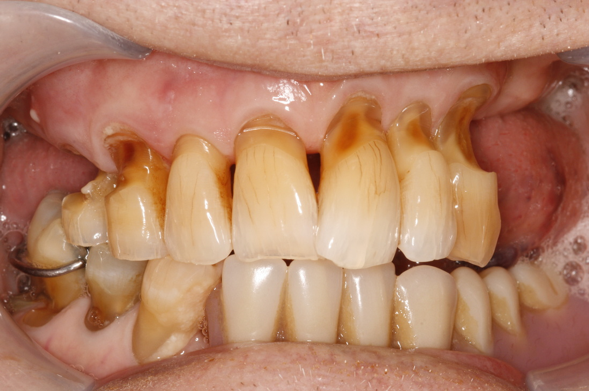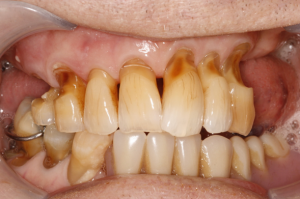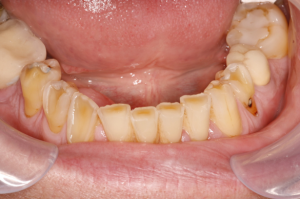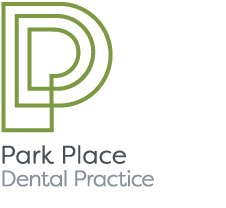Tooth Wear
Our tooth health is something that can easily be forgotten about, and as we age, it is inevitable that tooth wear will occur. Although this is a natural occurrence, there are things you can do to help to reduce abnormal or premature wear. Once tooth wear has occurred the appearance of the teeth will be greatly affected, and you will need a professional cosmetic dentist to help restore your smile.
There are three types of tooth wear – abrasion, attrition and erosion. Patients suffering tooth wear may exhibit one, two or all three forms.
- Abrasion is caused by excessive rubbing away of enamel and dentine. Common causes are vigorous tooth brushing, the use of certain abrasive toothpastes or the consumption of a coarse diet. Despite the undeniable benefits of brushing your teeth, it is also important not to brush them too vigorously and you use a toothpaste recommended by your dental team.
- Attrition results when there is contact between the teeth over and above what is considered ‘normal’ use. The most common causes are having missing back teeth or a misalignment of your bite which results in more pressure on the remaining teeth. Other causes can be grinding the teeth (bruxism) and clenching the jaw, which are often linked to stress.
- Erosion is by far the most common and damaging type of toothwear. It can result from the consumption of too much acidic foods and drink, particularly acidic fruits, fruit juices, certain alcoholic drinks and energy drinks. Also, medical conditions that cause excessive production or reflux of stomach acid can damage the teeth.
The following tips can help to reduce erosion:
- Drinking still water or low-fat milk between meals
- Limiting fruit and fruit juice to meal times and avoiding excessive fizzy drink consumption.
- Rinsing the mouth with water for 15 to 30 seconds after consuming acidic foods or drinks
- Chewing sugar-free gum or eating a piece of cheese after consuming acidic foods or drinks
- Waiting at least an hour to brush teeth after consuming any acidic foods or drinks
- Using a non-abrasive toothpaste containing at least 1400ppm fluoride.
- Using a fluoridated mouthwash every day at a different time to tooth brushing will help to limit any erosive effects.
How can a dentist help with tooth wear?
As well as trying to prevent the erosion of your teeth at home, it’s also important to visit your dentist regularly and ensure that you let them know if you notice any wear occurring.
In the early stages of tooth wear your dentist will recommend the prevention methods above, but when it has progressed further, a restorative treatment carried out by a specialist dentist may be necessary. Restorative dentistry can be a way of maintaining your tooth health, whilst also ensuring you are happy with how they look and how they make you feel.
Mark Hill, the principal dentist of Park Place Dental Practice located in the heart of Cardiff City centre, has extensive experience in tooth wear treatment and has trained internationally and lectures in the treatment of Tooth Wear. www.parkplacedental.co.uk/treatments/restorative-dentistry/tooth-wear/
The first step towards achieving the smile you have always wanted, or getting back the smile you had before, is to book a detailed oral health assessment where we will carry out a comprehensive medical and social assessment and a detailed oral examination. Visit our website where you can find out more information and book your appointment.
www.parkplacedental.co.uk/treatments/preventative-dentistry/oral-health-assessment/




